A first for Shibuya Ward! Licensed nursery school begins taking care of medically-cared children. Florence provided training for childcare workers and nurses.
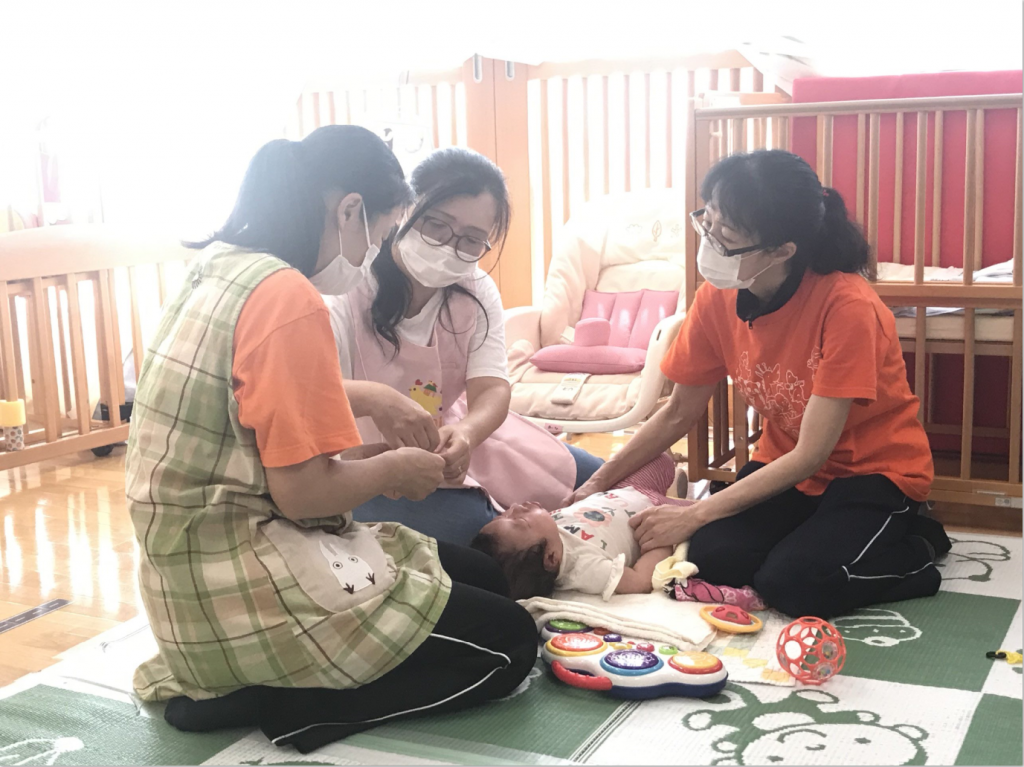
To provide childcare for all children, whether they have a disability or not.
With this in mind, Florence has been providing care for children with disabilities and medical care needs at Helen’s nursery for children with disabilities and Annie’s home visits for children with disabilities.
After 5 years of operation, we are finally able to accept medically-cared children at a licensed nursery school in Shibuya Ward, Tokyo.
For those of us who aim to create a society where healthy and disabled children can grow up together, this is the best thing that could happen to us.
In Shibuya Ward, this year only the Omukai Nursery School will be accepting children with disabilities. However, the number of children who will be accepted will be adjusted by taking into account the overall situation of the nurses and nursery staff, the condition of the children enrolled in the nursery school of their choice and the environment of the facility, as well as the safety of the children.
We were asked by Shibuya Ward to provide training for nursery school teachers and nurses, and in June 2020, a training session was held by instructors from Florence.Here are some of the content of the training.
—–
30 nursery school teachers from Omukai Nursery School and 4 nurses from nearby nursery schools participated in the event.
The instructors were Sakiko Morinaga, a childcare supervisor in the childcare division for children with disabilities , and Yumiko Takahashi, a nurse supervisor in the childcare division for children with disabilities , who conducts training for childcare staff in Florence.
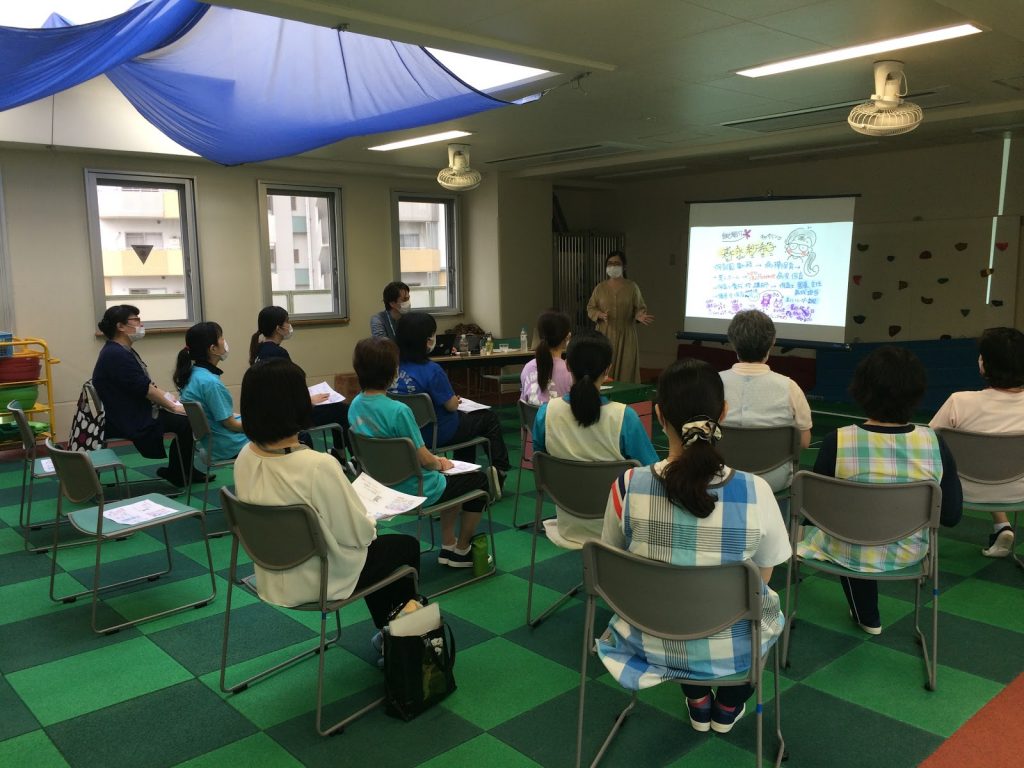
(Photo) Ms. Morinaga working as a lecturer
Initially, we talked about what it means to have a child with a disability and what a child in medical care is.
Of course each person has a different disease and developmental status. However, we believe that in order to provide care for children with disabilities and their families, it is essential to know the conditions of today’s Japanese society.
We also talked about the importance of “play” in the development of children with disabilities, while listening to the ideas of those who attended.
What is the role of childcare in medically-cared children ?
In the nursery, it is important to protect the child’s life and at the same time to do activities that promote the child’s development.The same is true for medically -cared children .’Play’ is an essential part of their developmental process and at Helen, our childcare staff, nurses, physiotherapists and occupational therapists have been working on the content of play.We’ve also introduced some of the play methods and content of play.
Children with severe mental and physical disabilities who have difficulty moving their bodies are especially stimulated by interaction with others.Therefore, they become aware of their own bodies through skin-to-skin contact.It is also important to empathize with the feelings of “fun” through the exchange of objects and words.Even the slightest change in facial expression cannot be overlooked when caring for children with disabilities.I also told everyone about the importance of waiting for these changes.
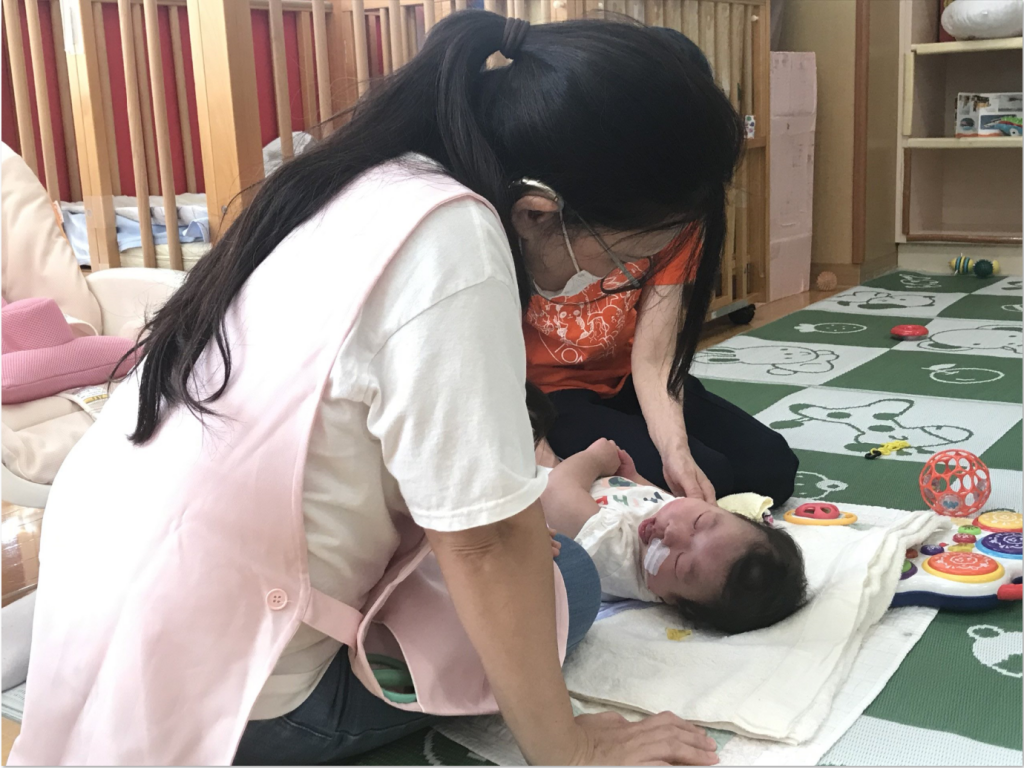
Accepting the feelings of the parents as well as the child
I believe that nursery schools actively support not only children but also their parents.
We believe that support is especially important for parents of disabled children.After birth, many medically-cared children spend long periods of time in the NICU.After they are discharged from the hospital, parents are still often the sole caregivers of their disabled children and are often unable to talk to anyone about it.
For this reason, many of them have concerns and worries even before their children enter the nursery, and it is necessary to first understand their feelings and support them so that they can resolve their concerns.As I mentioned above, it is necessary to create a system in which it is easy to consult with the children as they grow up.
A place for staff to discuss the care of children with disabilities that they provide as a team
Childcare for children with disabilities would not be possible without either the nursery staff or the nurses.It is important for the staff to respect each other and to practice team-based childcare by utilizing their respective strengths.
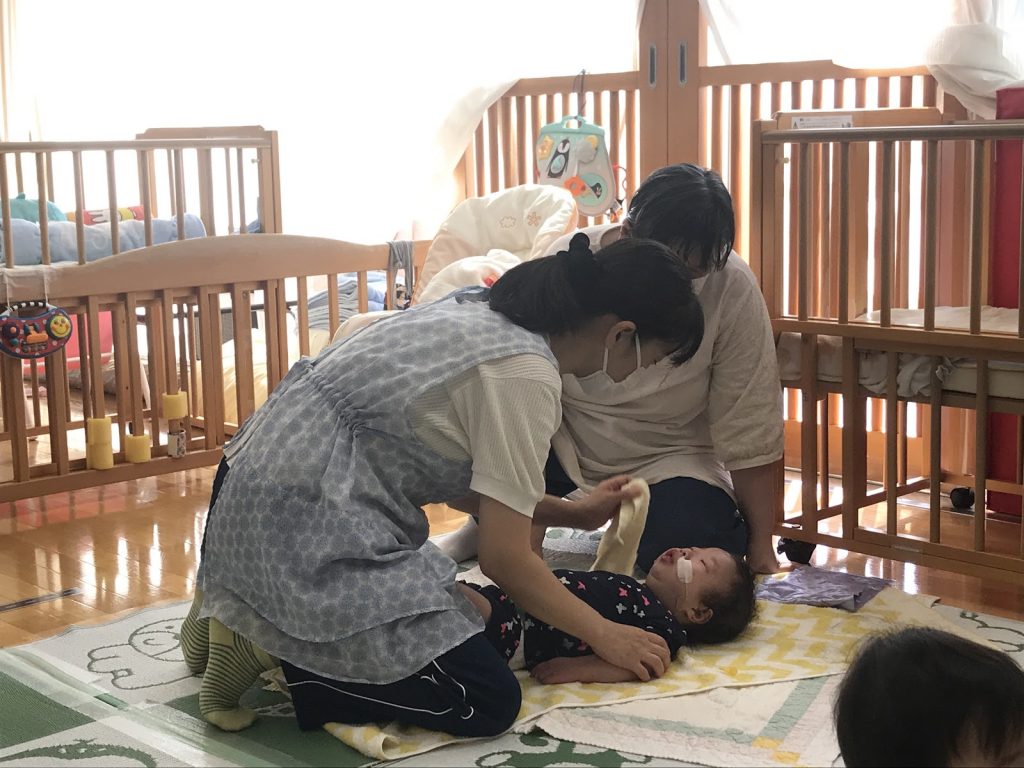
(Photo)Training by nurses
On this day, the staff discussed what they would like to emphasize in the care of children with disabilities at Omukai Nursery School.
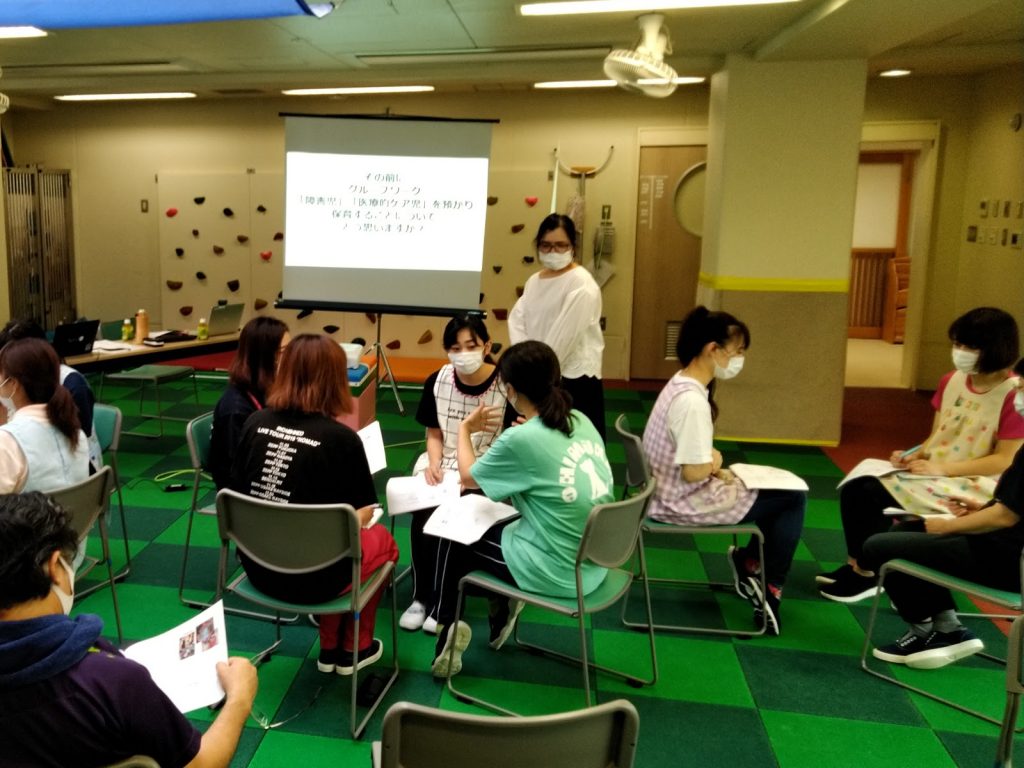
【Thought on the decision to conduct the Florence training , Mr. Toshihiko Maezaki, Director, Childcare Division, Child and Family Department, Shibuya City Office】
When accepting a child in medical care, it is very important to prepare for the hardware (e.g., a safe environment and facilities) and the staff (e.g., accumulated knowledge and preparedness) to safely care for children with disabilities.Particularly with regard to the “soft” aspects, there is a great deal of anxiety on the part of the accepting staff as to whether or not they can safely take care of children in medical care and how they should care for children in medical care.
In order to alleviate these issues, we felt that staff members could reduce their anxiety by receiving training from someone who had both a wealth of knowledge about childcare for children with disabilities and a high level of experience in the field.
Therefore, we decided to request training from Florence, a certified NPO that combines a wealth of knowledge and on-site experience in the field of childcare for children with disabilities, as well as the operation of Helen, Japan’s first nursery school for children with medical care needs and severely mentally and physically challenged children, Annie, which provides home-visit childcare services, and Nancy, a medically-based care sitter that provides on-site support for children up to the age of 18.
questionnaire, all of the participants answered that they were satisfied with the training content and that it would be useful in the actual field.
Some of them said positively that “my worries about childcare for medical care children have been relieved,” “I hope the nursery school will become a fun place for the medically-cared children in our care, ” and “I would like to receive the training repeatedly.
新着記事トップ5
To Global communityの最新記事
-
Solve “the barrier of the first grade of medically-cared children” problem! Parents of Helen nursery school for children with disabilities lobbied the governor of Tokyo.
-
“They are there for my son, who is intellectually and physically developmentally delayed and in need of medical care, and are comrades to my family. Teachers in Annie are invaluable.” – a former user of Annie home care for children with disabilities.
-
Start of the “Kodomo-Takushoku(Food delivery program for children and families) ” for members of the sick child care program for single parents! We delivered groceries and household items.